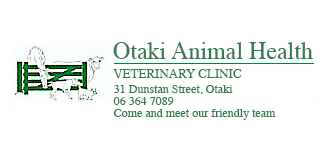Spring often means a burst of activity in and around our homes to get things fixed and spruced up. It’s a great time to do the same for our pets. Book them in for their annual health check, get onto flea and worm treatment, and perhaps a new brush to get rid of the winter coat. Unfortunately there’s also a lot of things around the house that could be dangerous for our pets, especially in the garden. Keep pets away from garden sprays, fertiliser and compost, and tools or machinery.
One of the most common dangers at this time of year is slug & snail bait toxicity. Dogs especially like to eat it, either straight out of the box, or from the garden.
Most contain a toxin called metaldehyde that affects the central nervous system. Initial signs of poisoning occur in as little as half an hour after ingestion. Death can occur within a couple of hours.
Signs of poisoning are usually progressive:
- Anxious behaviour
- Mild twitching
- Uncoordinated walk
- Salivating or excessive drooling
- Vomiting
- Diarrhoea
- Tremors
- Seizures
- Hyperthermia
If you know or suspect your pet has eaten slug & snail bait but is not yet showing signs, bring them into the clinic immediately. If you know the brand, inform the vet and if possible, bring the box with you. Unfortunately, slug and snail bait is often ingested without the owner’s knowledge.
There is no antidote. Treatment is aimed at managing the clinical signs and getting rid of as much of the toxin as possible through making your pet vomit, gastric lavage (“stomach pump”), and enemas; supportive care with IV fluids, medications or anaesthesia to control the tremors or seizures; cooling the body; and charcoal to help absorb any toxin that remains. Your pet will be hospitalised. Signs may continue for 24 hours or more.
As with all emergencies, the sooner they get to the vet the better the chance of a positive outcome.


